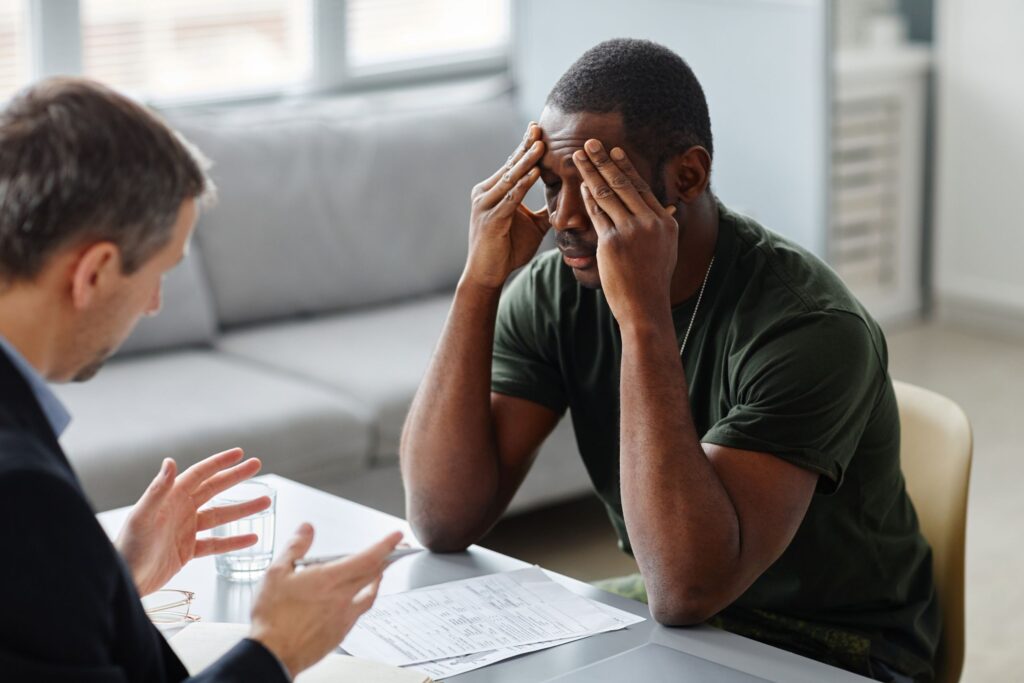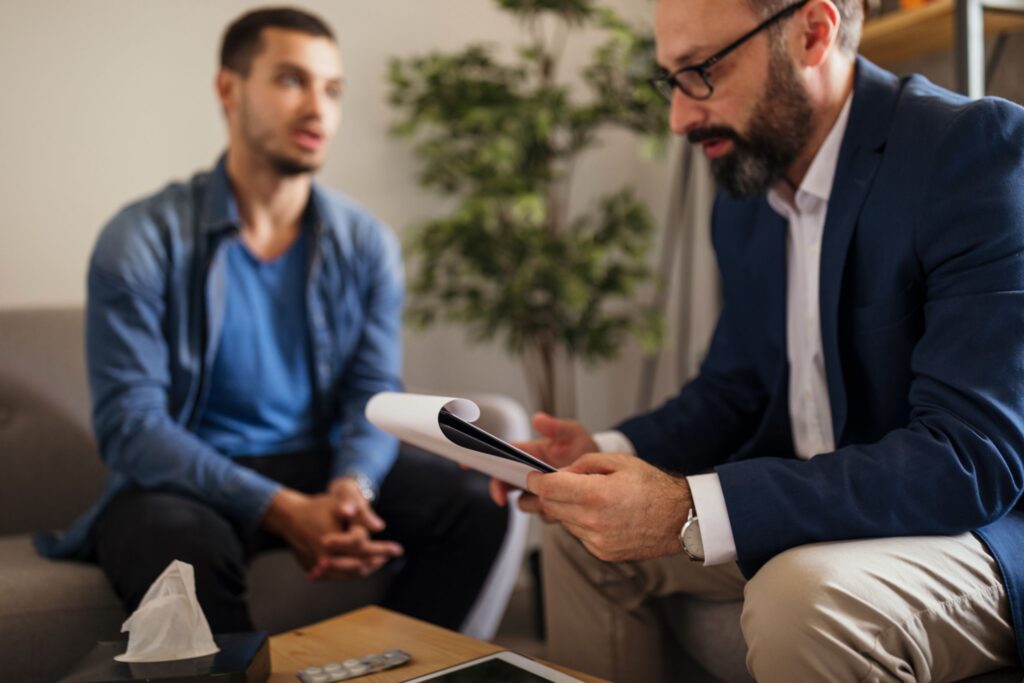PTSD and Addiction: The Connection



Post-traumatic stress disorder (PTSD) takes a significant toll on a person’s life by causing painful memories and difficult emotions to consistently surface. Addiction also alters how a person moves through their daily lives and causes both physical and emotional distress. People who deal with both diseases often do not make the connection between them. Do PTSD and addiction have something in common? Absolutely. Hand in Hand Recovery provides a safe haven for people to live while they work on improving their health and overcoming both PTSD and addiction.
If you or a loved one are struggling with Co-Occurring Disorders, we’re here to help. Call us or start the admissions process at Hand in Hand Recovery today!
PTSD is a type of mental health disorder that can occur when a person has experienced one or more traumatic events. The events may have occurred recently or even as far back as when they were a child. The person becomes traumatized by what happened to the point that it affects things like their relationships, careers, schooling, and ability to perform the daily chores of life.
PTSD can happen when someone has experienced any of the following situations:

When a person undergoes a traumatic event, they often feel lingering effects from it that do not go away on their own. The symptoms they experience can be quite painful and keep them from feeling whole and able to enjoy relationships, careers, and hobbies fully. When they don’t receive treatment, the symptoms often increase.
In an attempt to self-medicate, an individual may turn to drinking or using drugs to quiet the symptoms and cover up uncomfortable emotions. They may intend to use alcohol and drugs as a temporary bandage, but too often they go on to develop a substance use disorder. Unless a medical professional identifies the fact that PTSD and addiction are related, the person may go for years or decades battling two different diseases without being able to make progress.
Symptoms of PTSD vary per person, but many are commonly experienced by most people. These include:
When someone is addicted to alcohol or drugs, signs will occur signaling that there is a problem. The exact signs depend on the substance and the severity of the addiction, but common ones include:
Too often, a person makes the mistake of thinking they have to attend two different programs in order to heal both their PTSD and addiction. In fact, modern treatment facilities offer care for dual diagnosis, which is having both a mental health disorder and a substance use disorder. Many of the same therapies that help one type of disorder provide support for overcoming the other one.
For example, cognitive-behavioral therapy (CBT) works well for both addiction and trauma-based illnesses like PTSD. The same is true for dialectical behavioral therapy (DBT), which helps people make progress in both areas.
When a person begins to heal from PTSD, it often decreases their desire to rely on alcohol and drugs. Conversely, as they learn to live in a sober state of mind, they are able to process their emotions and experiences with a clear head. This helps them begin to minimize and even stop having many of the symptoms of PTSD. In other words, when a person treats both conditions simultaneously, the progress they make in one area influences their ability to become well in the other area.
When staying in a sober living house, residents have access to vital outpatient care programs like Partial Hospitalization Program (PHP) and Intensive Outpatient Program (IOP), which support them in their recovery from addiction. These same programs often offer the bonus of helping people who also have PTSD. Attending different therapy modalities that address both diseases helps people make progress more quickly and saves money.

Living through a traumatic event changes a person and how they are able to handle their lives. Too often, they turn to abusing alcohol or drugs in order to help cope with the symptoms of PTSD. When PTSD and addiction co-occur, it takes a specialized program that can help treat both conditions at the same time. Hand in Hand Recovery knows that where a person lives while they work on recovery influences how well they do. We designed our addiction treatment programs in Marietta to be comfortable and safe, which allows each resident to have the right space to heal.
Would you like to know more about staying in one of our beautiful sober living homes? Visit our admissions page now or call us today and get the information you need.